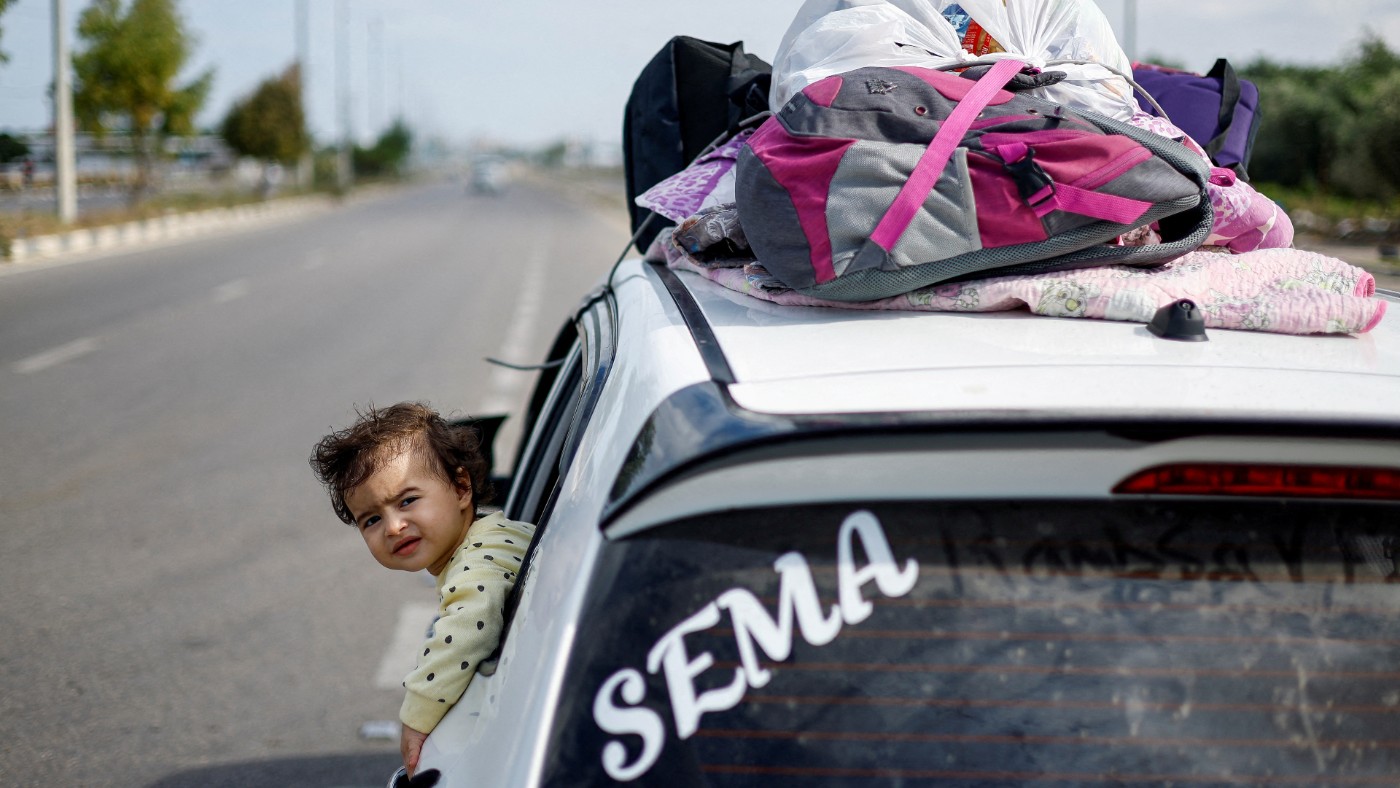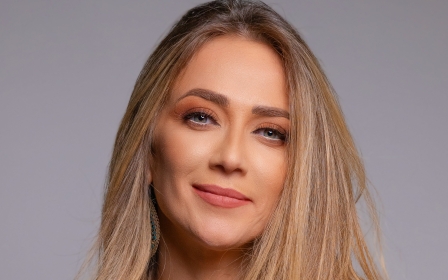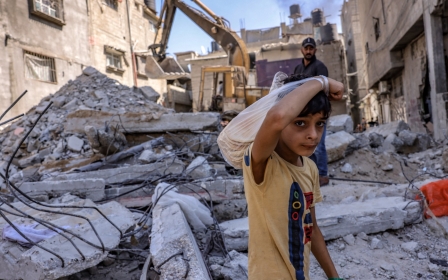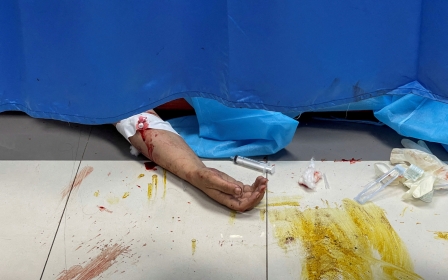Israel-Palestine war: Gaza's mothers struggle to stay strong for their children
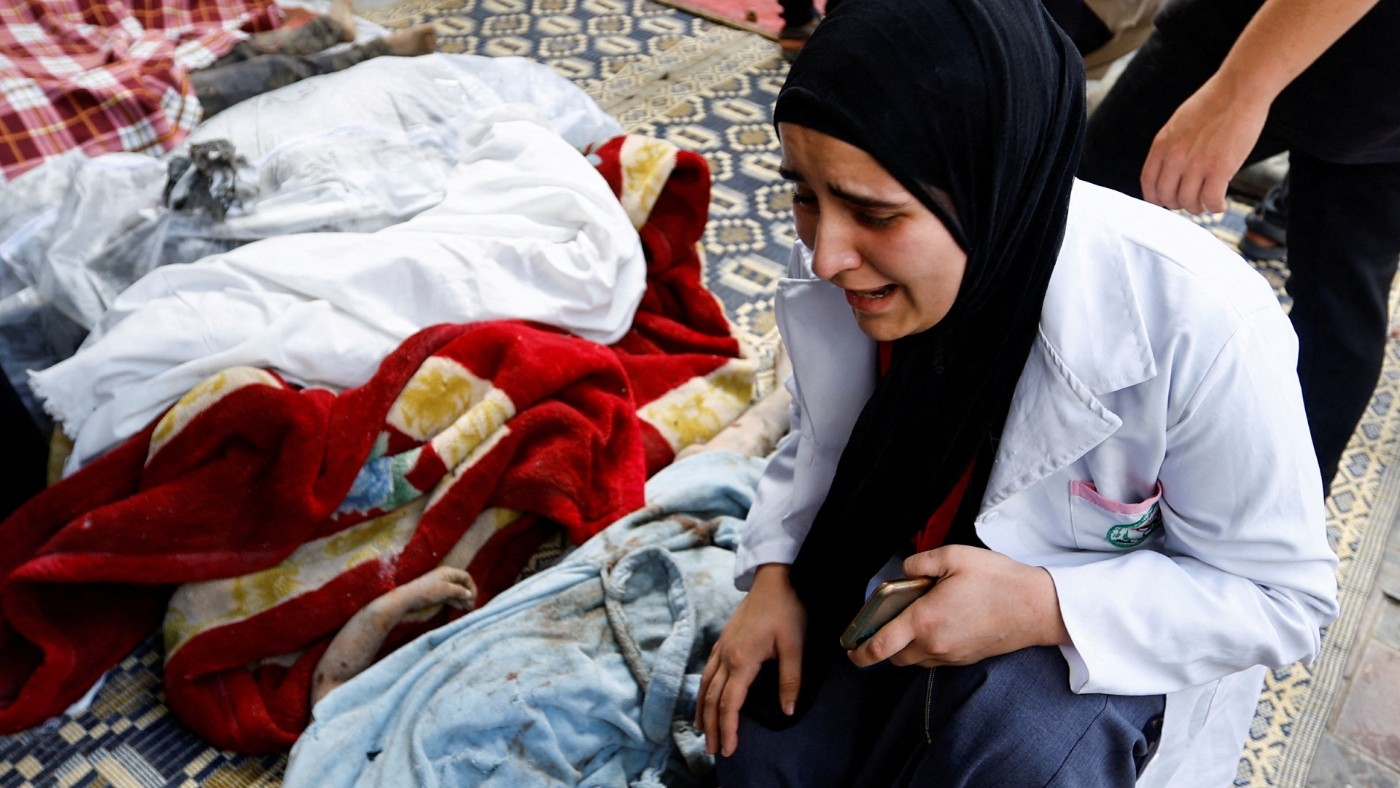
On three separate occasions in the last week, Alaa Hasham, a 30-year-old mother from Gaza, has gathered her two children close to her, collected a handful of possessions and moved from one place of refuge to the next.
Out in the open, under hostile skies, there is nothing but destruction. Homes, schools, hospitals, mosques: all bombed into the ground, flattened by the Israeli air strikes that have rained down ever since the 7 October Hamas-led attack on Israel.
Hasham has never known a harder time as a mother. On the first day of the war, she left her Gaza City home because it had been partially damaged. At midnight, she stepped into an ambulance with her husband, nine-year-old son, and five-year-old daughter.
On their way to a friend’s house, the ambulance driver got a call from someone whose house had been bombed. Urgent assistance was needed. The driver said he was sorry, but Hasham and her family needed to get out of the ambulance so he could go to the bombed building.
“But it’s dangerous round here,” Hasham told the driver. “Everywhere is dangerous,” he replied. Feeling desperate, the mother remembered that she had an uncle living just around the corner. The ambulance dropped her there.
New MEE newsletter: Jerusalem Dispatch
Sign up to get the latest insights and analysis on Israel-Palestine, alongside Turkey Unpacked and other MEE newsletters
Then on Friday, the Israeli army issued an order giving all civilians – over a million people - in northern Gaza 24 hours to evacuate to the south of the besieged enclave. The demand was repeated by US Secretary of State Antony Blinken, while the United Nations warned that it would be impossible to carry out “without devastating humanitarian consequences”.
Many refused to leave their homes, fearing a repeat of the Nakba in 1948, when hundreds of thousands of Palestinians were expelled from their land, never to return. Hamas told Gazans to “stay put in your homes, and your places,” according to one of the group’s spokesmen, Eyad al-Bozom.
With Israel striking one of the main roads south, the journey was fraught with danger and severe complications, particularly for those without cars. Families shared cars, making the trip in shuttles. Some drivers asked for up to $100 to take people south, justifying the charge by saying that they could die on the road.
Following the evacuation order, delivered via the Israeli army’s social media pages and dropped from the sky in the form of leaflets, hundreds of thousands of people left their homes in northern Gaza. The electricity supply had already been cut off and the besieged enclave was already running out of food and clean water, exacerbating an already dire humanitarian situation.
Hasham and her family were able to move to a friend’s house in the southern Gaza Strip. They are there now with more than 30 other people in the same building.
“I do my best to take care of the wellbeing of my children, we have an agreement in the house not to mention disturbing news or pictures in front of children,” Hasham told Middle East Eye in a phone interview.
The mother says she lies to her children and tells them that civilians cannot be harmed in the ongoing Israeli attacks. “I don’t want them to be terrified all the time, this is not good for their mental health,” she said.
'I’m totally devastated to see my children frightened all the time'
- Haneen Samir, Gaza
During the day, Hasham reads stories to and plays with her children and the other children staying in the building they’re in.
She encourages her children to talk about their fears. Though they have only ever lived in Gaza, her children have German citizenship through their father, a Palestinian-German, and her son asks her why they still live in the besieged enclave when they could be somewhere else.
While her son voices his fear, his sadness and his frustration, her daughter remains quiet. When her mother asks her how she is, she tells her she just wants to be left alone.
Hasham only has two sets of clothes for each of her children. “I tell my children to try to keep their clothes clean as long as possible as I have to hand-wash them,” she told MEE. With water needed for other purposes, showering is no longer a priority.
As of Tuesday morning, 2,808 people have been killed in Gaza. Over a thousand children have now been killed in Israeli air strikes - 1oo children every day, or one child every 15 minutes. Meanwhile, 1,400 Israelis – 947 of them civilians – have been killed.
Children of war
In war zones, as the British paediatrician Donald Winnicott suggested, young children often interpret the level of danger they are in based on how their immediate caregivers are reacting, as well as looking to those caregivers for reassurance.
Psychiatrist Yasmine Ghanem told MEE that it is extremely difficult to separate children in Gaza from what is happening around them because the sounds of explosions are heard constantly in all parts of the Strip.
“What parents can do is to explain in simple language to their children what’s going on, and keep calm no matter how hard the situation is,” Ghanem said.
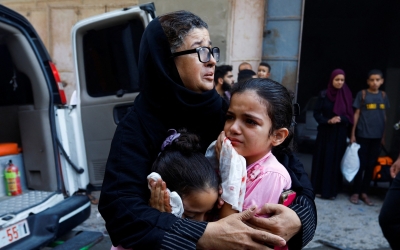
As Hasham and her family were on the road south, Haneen Samir, 28, was looking to evacuate her house in Gaza City to join thousands of Palestinians sheltering in al-Shifa hospital, in the centre of Gaza. When Samir arrived, though, she saw a mass of people in terrible conditions and decided to go home.
“I saw women and children spending the night outdoors, others waiting in long lines for restroom facilities. I made the decision that this environment was not convenient for me or for my children,” Samir told MEE.
A mother of three, Samir faces the added challenge of caring for a child born with a heart defect. “Sara requires numerous medications, some of which need to be dissolved in hot, clean water - this is why I cannot leave my home and go to a place where there is no access to clean water.”
And so with an Israeli ground invasion looming and air strikes still coming, Samir and her family will have to stay in northern Gaza.
“I’m totally devastated to see my children frightened all the time,” she told MEE. “I am devastated and I am unable to help them.”
This article is available in French on Middle East Eye French edition.
Middle East Eye delivers independent and unrivalled coverage and analysis of the Middle East, North Africa and beyond. To learn more about republishing this content and the associated fees, please fill out this form. More about MEE can be found here.


